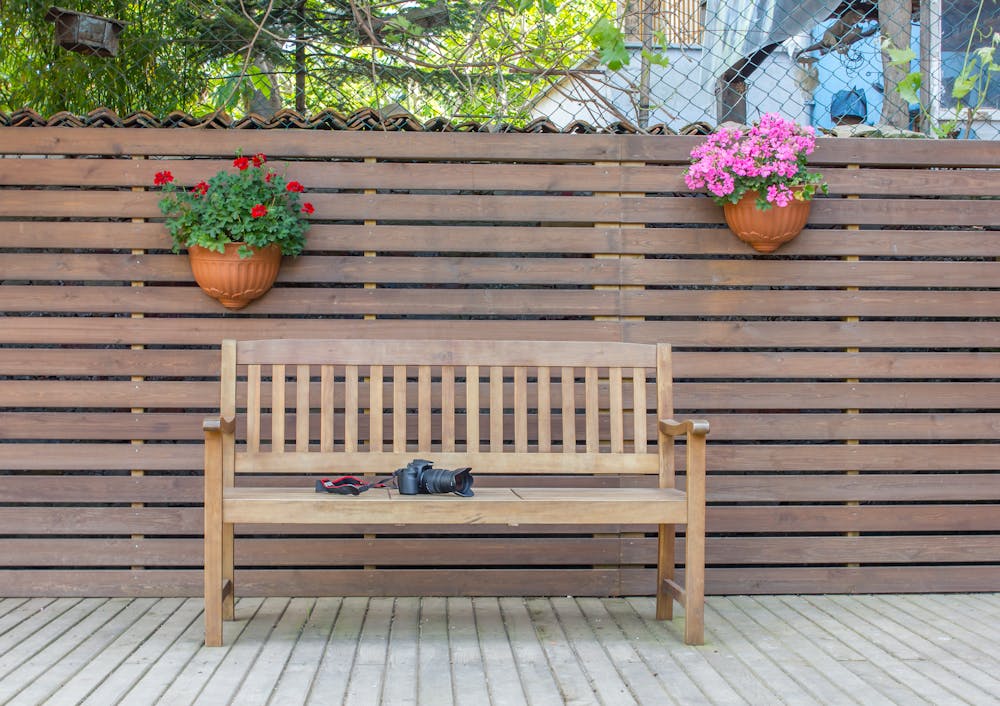When you’re choosing fencing for your garden, one of the biggest concerns is how well it will stand up to the elements. In the UK especially, we’re no strangers to rain, wind, frost, and the occasional heatwave — sometimes all in the same week. Traditional timber fences can struggle with these extremes, leading to rot, warping, or fading over time. Composite fencing, however, promises to change all that. But just how weather-resistant is it really? Let’s take a closer look.
Resistance to Rain and Moisture
Let’s start with the obvious: rain. Traditional wooden fences absorb water like a sponge, eventually leading to rot, mould, and structural weakening. Composite fencing, on the other hand, is designed to be water-resistant. It doesn’t absorb moisture, meaning no swelling, rotting, or damp patches — even after long, wet winters. A quick wash with soapy water is usually enough to keep it looking fresh, no matter how soggy the season gets.
Standing Strong Against Wind
High winds can wreak havoc on garden fences, especially if the materials have already weakened over time. Composite fencing tends to be heavier and sturdier than standard timber panels, giving it excellent wind resistance. When properly installed with strong posts and fixtures, composite fences can handle gusty conditions far better than many older wooden or metal alternatives. Click on the link to find high-quality fencing solutions.
UV Resistance and Colour Retention
The sun might not seem like the biggest threat in the UK, but over time, UV rays can cause significant fading and weakening of outdoor materials. Composite fencing is often manufactured with built-in UV protection, which helps preserve its colour and strength even after years of exposure to sunlight. Rather than turning a tired, greyish tone like untreated wood, composite fencing stays vibrant and sharp with minimal fading.
Withstanding Freezing Temperatures
Winter can be brutal on outdoor structures, with freezing temperatures causing water inside materials to expand and create cracks. Since composite fencing doesn’t absorb water, it’s far less likely to suffer frost damage. It holds its shape through freeze-thaw cycles, meaning no cracking, splitting, or unexpected repairs once the temperatures rise again.
A Year-Round Champion
Whatever the season throws at it — heavy rain, blustery winds, scorching sun, or biting frost — composite fencing is built to take it all in stride. It doesn’t just survive different weather conditions; it thrives in them, maintaining its beauty and strength year after year with very little effort required on your part.
Why Timber Fencing is Not Suitable for the UK
Everybody loves the look of a new timber fence when it’s just been installed. It has a beautiful honey colour and you can see all of the natural grains of the wood. However, this is often short-lived when you’re in the UK. After just a few months, you can notice your new fence starting to deteriorate. This can be disheartening and it can feel like you’ve made the wrong investment.
Indeed, more people are starting to realise that timber might not be the best material for fencing. Instead, options like composite are rising in popularity. Let’s take a look at why timber fencing might not be suitable for the UK.
High Rainfall
Everybody in the UK knows that there’s a lot of rain throughout the year. These damp conditions are not ideal for a timber fence. In fact, it’s something that not only impacts the appearance but also the stability and strength of the material. For example, constant rain can lead to warping of the wood and cracking. It can also lead to rot and decay, which weakens the fence, and it can become a hazard.
A lot of Maintenance
Some people still want timber because it’s a cost-effective option. Well, know that this low price is only in the beginning. You’re going to have a lot of maintenance if you want to protect the wood from British weather. We’re talking about buying expensive treatments and paints, as well as the time it takes to apply these. This maintenance is not what you want to spend your spring and summer months doing.
Not the Strongest
Do you live somewhere on the coast where you get high winds? You need to think carefully about the best material for a fence. You want something that can stand up during bad weather and won’t become a hazard. Know that timber can be blown over, and it’s not going to be the strongest option out there. Instead, it’s better to get heavier materials and those that can be attached to the ground in a more effective way.
Conclusion
When it comes to weather resistance, composite fencing really lives up to the hype. Its combination of water resistance, UV protection, and structural strength means you can enjoy a beautiful, durable fence without the constant worry of repairs or replacements. If you’re looking for a fencing solution that truly stands the test of time — whatever the British weather decides to do next — composite fencing is well worth considering.





